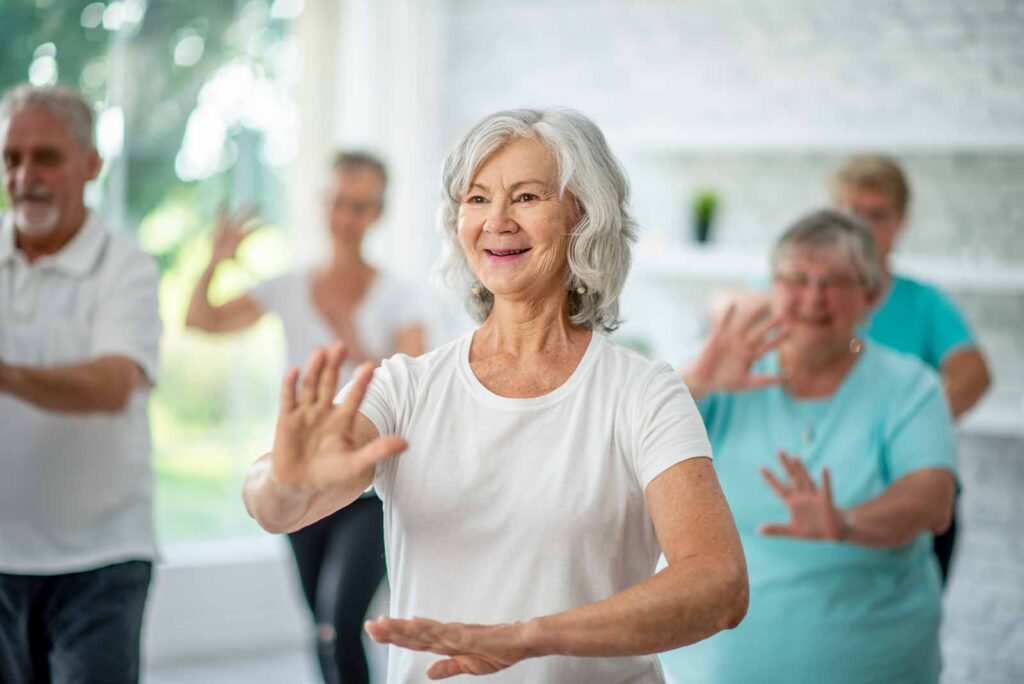Practising the ancient martial arts of Tai Chi & Qigong can improve people’s spatial awareness and coordination and help them avoid potentially dangerous slips or falls, study finds

Elderly people whose eyesight is failing can improve their balance and avoid dangerous falls by practising Tai Chi Qigong, according to a study.
Experts say the gentle martial art builds strength and also improves balance control, reducing the chances of life-threatening falls among old people with poor eyesight.
Researchers from the Hong Kong Polytechnic University set up a four-month programme for 40 people aged over 70 living in care homes. The volunteers had three 90-minute tai chi sessions a week.
Each session was designed to help volunteers practise shifting their weight gradually, rotate their heads and torsos and become more aware of their limbs, thus improving their co-ordination.
Results, published in the Age and Ageing journal, revealed volunteers who practised had far better balance than a control group who were taught to play an instrument. Study author Dr William Tsang said: “Tai Chi Qigong can be a suitable form of exercise for those with visual impairment and indeed assists with improving their balance control.”
“It would be interesting to extend this study to involve community dwelling older people, who tend to be more independent and could benefit differently from the training.”
He added: “Tai Chi Qigong practice requires conscious awareness of body position and extremity movements, which may improve joint proprioception [awareness]. Repeated head movement is one of the important elements in Tai Chi Qigong, and this can help to stimulate the vestibular system to improve balance control”.
“This study’s results agree with those of a previous study which reported that the knee joint proprioception of persons with normal vision could be improved with 16 weeks of Tai Chi Qigong training. This study extends those findings to visually impaired older people.”

